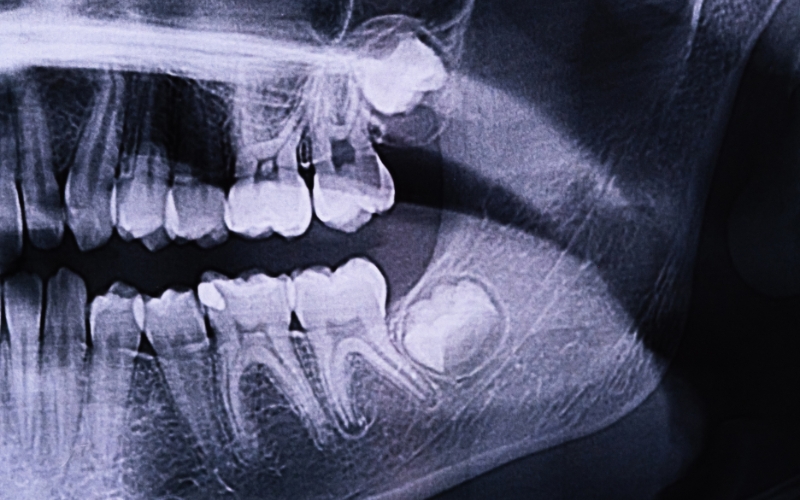


Wisdom tooth extraction is a common oral surgical procedure to remove third molars that often cause issues like pain or overcrowding. Understanding possible complications after wisdom tooth extraction is crucial for patients and practitioners alike. Complications such as dry socket, infection, nerve damage, or sinus issues can arise, emphasizing the need for careful preoperative assessment and postoperative care. This overview aims to highlight the significance of awareness and preparedness in managing these potential challenges effectively.
Common Complications After Wisdom Tooth Extraction
A. Dry Socket: It is one of the most common complications after a wisdom tooth extraction. This occurs when the blood clot at the extraction site dislodges or dissolves prematurely, leading to exposed bone and severe pain.
Also Read: What Are The Causes Of Dry Sockets?
B. Infection: This can develop in the extraction site, causing swelling, and pain, and potentially spreading to other areas if left untreated.
C. Pain and Swelling: Common side effects post-extraction, manageable with prescribed medications and proper care.
D. Limited Mouth Opening (Trismus): Temporary difficulty in opening the mouth fully due to muscle stiffness, typically resolves with time and gentle stretching exercises.
E. Nerve Damage: Rare but possible, resulting in numbness, tingling, or altered sensation in the lips, tongue, or cheeks, often temporary but may be permanent in severe cases.
Less Common Complications After Wisdom Tooth Extraction
A. Sinus Problems: Rarely, the removal of upper wisdom teeth can cause communication between the mouth and the sinus cavity, leading to sinus issues such as congestion, pressure, or infection.
B. Jaw Stiffness or Pain: Some patients may experience prolonged jaw stiffness or pain, which can be caused by muscle strain, temporomandibular joint (TMJ) issues, or inflammation.
C. Excessive Bleeding: While bleeding is one of the normal complications immediately after a wisdom tooth extraction, excessive or prolonged bleeding may occur in rare cases, often due to underlying clotting disorders or inadequate clot formation at the extraction site.
Rare Complications After Wisdom Tooth Extraction
A. Osteomyelitis: An uncommon but serious complication after wisdom tooth extraction is osteomyelitis which may occur if bacteria enter the bone tissue at the extraction site, leading to inflammation, pain, and potentially bone destruction.
B. Damage to Adjacent Teeth or Structures: In rare instances, nearby teeth, nerves, or blood vessels may sustain damage during the extraction process, resulting in complications such as fractures, numbness, or bleeding that require additional treatment.
Minimizing Risks Before and After the Procedure
A. Pre-operative Consultation: Ensure thorough discussion with the oral surgeon regarding medical history, medications, and any concerns. X-rays and exams help identify potential complications beforehand.
B. Following Post-Operative Instructions: Adhere strictly to instructions provided after the procedure, including proper oral hygiene, prescribed medications, and dietary restrictions to promote healing and prevent complications.
C. When to Contact an Oral Surgeon: Reach out if experiencing severe or persistent pain, swelling, bleeding, fever, or any unusual symptoms post-extraction. Early intervention can address emerging complications effectively.
Wrap Up!
In conclusion, wisdom tooth extraction, performed by a skilled oral surgeon like those in Beverly Hills, is generally safe with minimal risks when proper precautions are followed. Open communication with the oral surgeon before and after surgery is crucial to address any possible complications after wisdom tooth extraction. It’s worth noting that in some cases, alternative removal options may exist, depending on the evaluation by an oral surgeon. Schedule your consultation with an oral surgeon in Beverly Hills today for a pain-free smile tomorrow!




